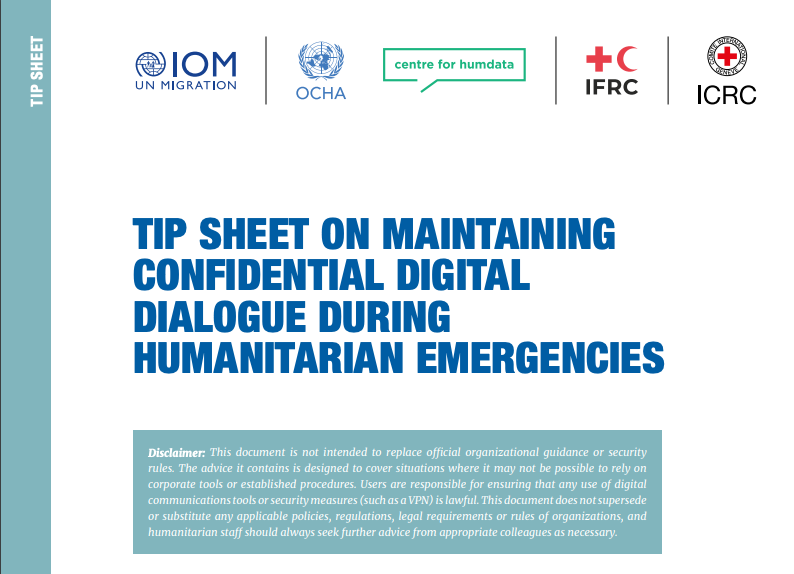Share
Confidential dialogue is essential to humanitarian operations. For example, humanitarian action often requires confidential dialogue with parties to a conflict or key actors in other humanitarian environments. With digital communications becoming more common in humanitarian work, confidentiality and the secure transfer of information and data via digital means is essential.
The current COVID-19 health crisis, with its movement restrictions and social distancing rules, makes in-person meetings difficult to arrange. Maintaining contact with affected populations, other humanitarian partners, parties to a conflict and other interlocutors increasingly relies on digital communications.
To help colleagues navigate questions regarding the confidentiality of their digital communications in humanitarian response, the Centre, the International Committee of the Red Cross, the International Federation of Red Cross and Red Crescent Societies, and the International Organization for Migration produced a Tip Sheet on Maintaining Confidential Digital Dialogue During Humanitarian Emergencies.
This tip sheet offers:
- an overview of the threats to confidentiality associated with digital communications in higher risk humanitarian contexts, including physical and covert surveillance, metadata, interception and hacking
- recommendations to mitigate those threats, including communication protocols, countermeasures, digital security, choice of application and digital hygiene
- a set of resources that can be used to help identify suitable communications tools.
This tip sheet is the second of its kind, following the Tip Sheet on Responsible Use of Online Conferencing Tools. For more on data responsibility in humanitarian action, visit the Data Responsibility page on the Centre’s website or contact our team at centrehumdata@un.org.
